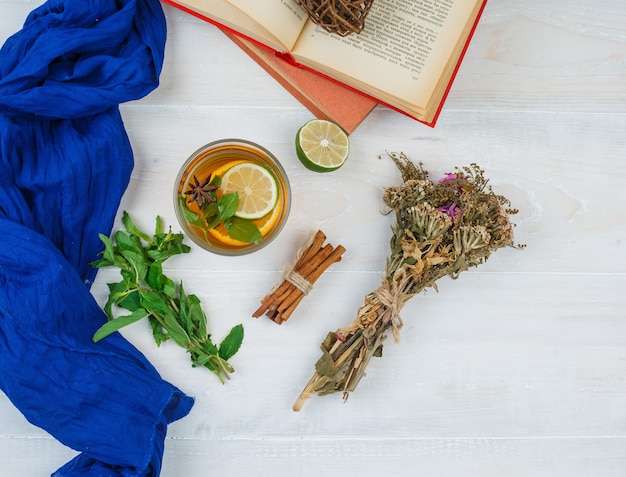
Many people around the world experience anxiety and depression for various reasons. These overwhelming feelings—ranging from sadness and worry to panic and hopelessness—are often linked to a chemical imbalance in the brain. This imbalance could be influenced by genetics or triggered by stressful situations and environments. Regardless of the cause, managing these emotions can be challenging, both emotionally and physically. While there are numerous prescription medications available to treat these issues, they often come with side effects and high costs. If you’re looking for a natural approach to address these conditions, you’re in luck. For centuries, herbs have been used effectively to alleviate the symptoms of anxiety and depression. Below, we explore seven time-tested herbs known for their therapeutic properties.
**Herbs That Can Help with Anxiety and Depression**
**St. John’s Wort**
This herb is one of the most popular natural remedies for anxiety and depression. It helps reduce feelings of sadness and tension, while combating fatigue and restlessness. Its active component, hypericin, works similarly to compounds found in many antidepressants but without the harsh side effects of prescription drugs. You can brew it into a tea, prepare it as a tincture, or try the convenient capsule form available at local pharmacies or natural health stores.
**Lemon Balm**
Lemon balm, also called Melissa, is a calming herb that’s great for soothing anxiety and lifting depression. It eases irritability, improves sleep, calms the stomach, and even lightens moods. You can inhale its calming scent through essential oils or add a few drops to a warm bath for instant stress relief. Many children enjoy its mild, lemony taste, making it an excellent choice for younger individuals. To enjoy its benefits, you can brew it into a tea or infusion.
**Kava**
Originating from the Pacific islands, kava has become well-known for treating symptoms like stress, fatigue, and even hyperactivity. This herb is particularly effective for easing tension and anxiety. You can make a soothing tea by boiling kava root or opt for capsules if convenience is key. However, it’s important to use this herb temporarily and under a doctor’s supervision, as it’s not recommended for long-term use.
**Passionflower**
This non-addictive herb has been used for years to relieve tension, improve sleep, and reduce mood swings or irritability. Passionflower is also particularly helpful for anxiety and depression linked to PMS. Whether eaten fresh, cooked into foods, or brewed as tea, this herb offers natural, gentle relief.
**Chamomile**
Known for its calming effects, chamomile is a wonderful herb for improving mood, easing insomnia, and reducing panic attacks. Its mild properties make it safe to use for children and even babies. You can enjoy chamomile as a soothing tea, apply its essential oil topically when mixed with a cream or oil, or take it in capsule form.
**Gingko Biloba**
Gingko biloba is particularly helpful in boosting mood, combating depression, and alleviating fatigue. It also enhances focus and memory, making it especially beneficial for older adults. By promoting better blood flow to the brain, gingko improves overall mental function while addressing symptoms of anxiety and depression. You can take it in tea or capsule form, both of which are widely available in stores.
**Rosemary**
Rosemary is a mood-boosting herb that fights fatigue, enhances happiness, and promotes well-being. Its energizing qualities make it a great option for relieving anxiety and depression. Dried rosemary can be used in relaxing bath soaks or added to eye pillows for stress relief. The essential oil is versatile—it can be inhaled or applied topically when combined with a carrier oil or cream. You can even include rosemary in your cooking to naturally enjoy its therapeutic benefits.
Using herbs as a natural way to ease anxiety and depression is a fantastic option for holistic healing. They are widely available and serve as a great alternative to medication, especially when you want to stabilize your mood or calm frazzled nerves. While these herbs are generally safe and gentle, it’s always wise to consult your doctor for advice or if you have any concerns about your mental health or treatment options.